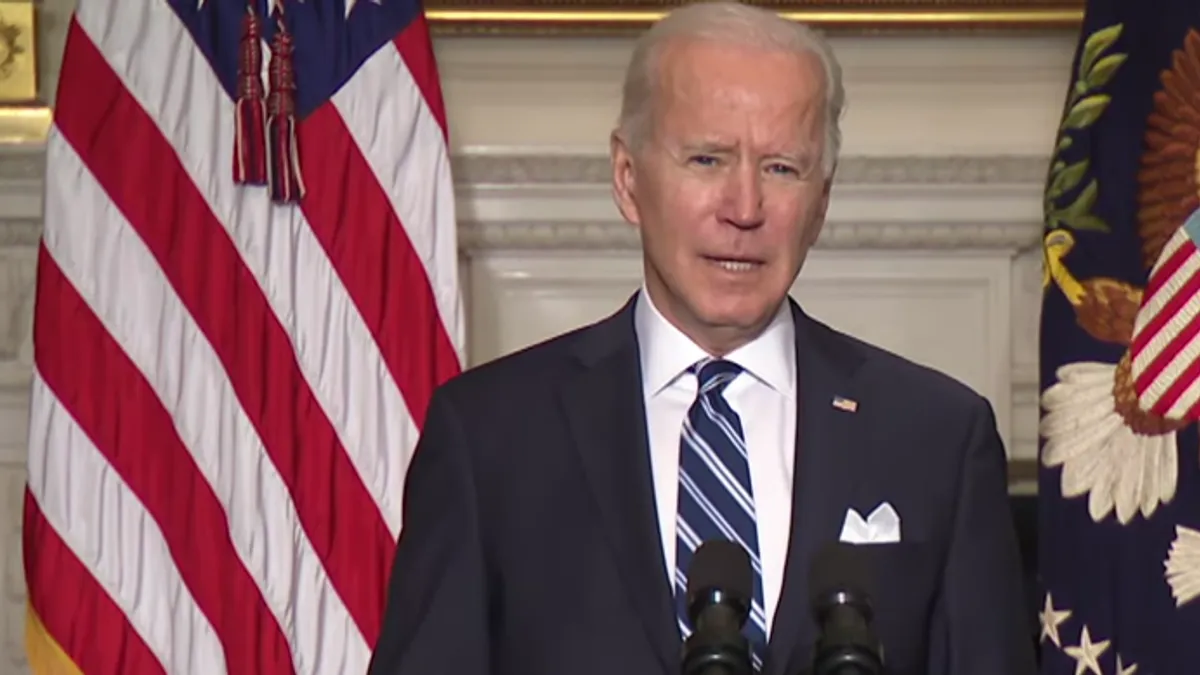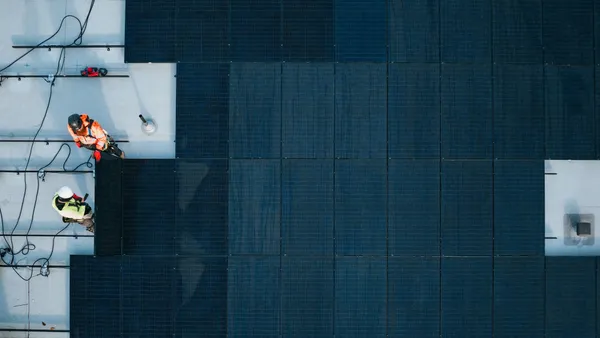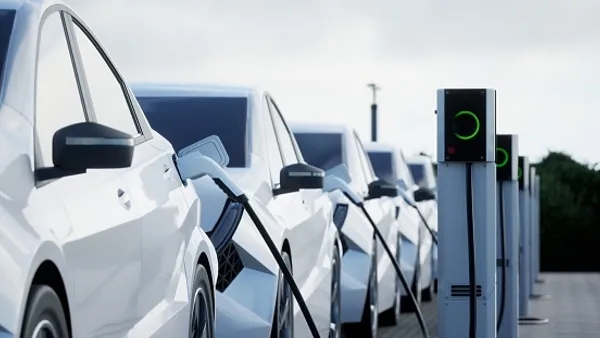Dive Brief:
- The White House on Thursday released a "fact sheet" adding detail to President Joe Biden's plan to accelerate the adoption of electric vehicles (EV), including new funding and research partnerships and providing guidance on how existing federal grant programs can be used by states to install charging infrastructure.
- Biden's American Jobs Plan includes $174 billion for EV investments, including chargers and vehicle purchase incentives. Policy experts say much of that proposed spending will need to be authorized by lawmakers, but on Thursday the administration highlighted more than a dozen programs with $41.9 billion in federal grant funding available now and which could be applied to EV infrastructure buildout.
- "Identifying resources that exist now can get the ball rolling on this," said Samantha Houston, senior vehicles analyst in the Union of Concerned Scientists' Clean Transportation Program. "There is a lot of great stuff in the fact sheet."
Dive Insight:
Federal lawmakers are working to translate Biden's jobs plan into an infrastructure bill that will help to revitalize and decarbonize the United States' economy. While that legislation is being developed, experts say it is important that existing funding opportunities be tapped in order to begin making immediate progress on transportation electrification.
"It's really encouraging to see federal leadership on EVs and charging infrastructure. We need it right now to succeed in this rapid transition to electric transportation," Houston said. "That is the direction the market is going anyway, but we need to get there as quickly as we can."
"Electric mobility is currently in a similar place where renewable energy was a few years ago; trending upwards yet not widespread," ENGIE Impact CEO Mathias Lelièvre said in an email, adding he is "encouraged" by the president's proposal. ENGIE assists companies and governments in setting and meeting climate targets.
The transportation sector is the United States' largest contributor to greenhouse gas emissions, and in order to decarbonize it and the rest of the economy by 2050 Biden is aiming to electrify much of the U.S. vehicle fleet — and bring the power sector to 100% carbon-free by 2035. His administration's new report finds that building 500,000 new public EV chargers is "a key strategy" for reducing emissions.
The report concludes federal funding for EV charging infrastructure on U.S. highways is available through 15 programs.
Those could be used to build chargers, support workforce training and integrate EVs into public transportation systems and freight, the report said. But DOT also warned that "many of these programs are oversubscribed, and EV charging infrastructure competes with many other types of eligible projects."
"The American Jobs Plan would provide dedicated funding for EV charging infrastructure," DOT said.
The National Highway Performance Program, for instance, has a Fiscal Year 2021 budget of $23.1 billion and the Surface Transportation Block Grant Program was funded at $10.2 billion. Each could be accessed to construct chargers and support training related to EVs, DOT said.
The U.S. Department of Energy also announced new research funding opportunities, including $10 million to reduce the cost of direct current fast charging equipment and $20 million for community-based public-private partnerships that support charging infrastructure and share data.
DOE has also marked $4 million aimed at boosting workplace charging. And the Idaho National Laboratory will partner with automakers to analyze anonymous vehicle charging data "that describe market-level trends of operation and charging behavior for a large sample of U.S. consumer EVs."
The White House also announced early progress on its goal to electrify the federal vehicle fleet, saying the Council on Environmental Quality and the General Services Administration "are on track to triple the number of total [zero emissions vehicles] added to the fleet this year compared to last."
The United States and Canada have also agreed to work jointly "to identify a pathway to net-zero supply chains" for the countries' buildings and zero-emissions vehicle fleets. The U.S. federal government has a fleet of about 650,000 vehicles, and experts say the shift to all-electric will require an early focus on charging.
Transitioning the federal fleet will require building EV infrastructure on federal property, said Lelièvre, which will ultimately benefit not just the federal fleet but also visitors and contractors who are on federal grounds.
"Working on this EV infrastructure is something the government can do immediately, while the fleet itself will take some more time to change," Lelièvre said.
Charging infrastructure at federal facilities is "a really critical complement to this commitment," said Houston.
House Speaker Nancy Pelosi, D-Calif., has targeted July 4 to finalize a $2 trillion infrastructure bill, and those efforts may focus around H.R. 2, the infrastructure bill passed by Democrats in July. However, Republicans have released a competing — and dramatically smaller — infrastructure proposal that would spend just $568 billion and does not include funds for EV infrastructure and incentives, or other power grid investments.














